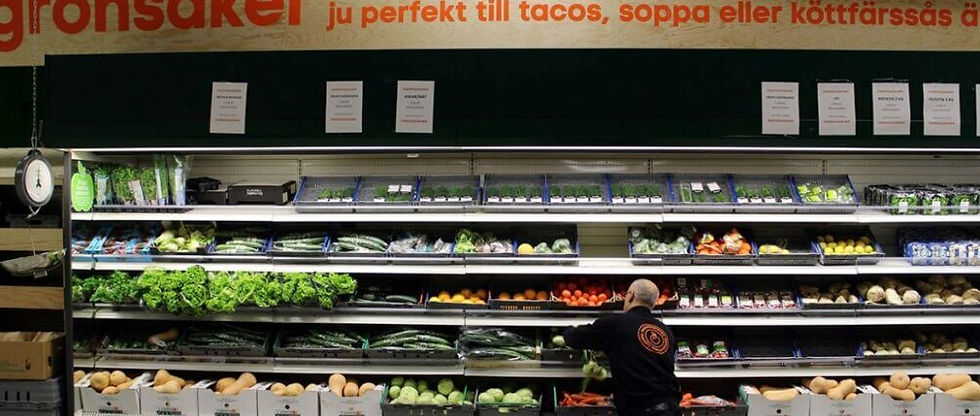Sweden is in need of a national digital food bank
- Generation Waste

- Nov 21, 2022
- 2 min read

In a recently produced supply and logistics analysis by Chalmers industrial technology, several factors point to Sweden's need for a national digital food bank. One of the factors is the fact that the surplus of finished goods at the producer and wholesale level in Sweden reaches 11,251 tonnes.
According to the Swedish Environmental Protection Agency, Swedish food handling accounts for approximately 20-25% of the country's climate footprint and in 2016 the total food waste was approximately 1.3 million tons. In Chalmers' analysis report, the goal was to produce data on how much excess finished goods arise at the producer and wholesale levels, to then identify transport and logistics solutions for regional food banks. The data produced shows 11,251 tonnes of surplus finished goods at the producer and wholesale level, of which 5,000 tonnes can potentially be donated.
A national digital food bank acts as a collection point for surplus food from central warehouses and producers. The advantages of a National digital food bank are that you can easily make food waste visible and match supply with demand. The idea of a national digital food bank is not a new concept but already exists in several other countries in Europe. The truth is that Sweden is one of the few countries in Europe that lacks a national food bank.
Sweden's urban missions are those that today, and for many years past, have acted as leaders when it comes to redistributing surplus food from producers, wholesalers, and grocery stores to various charities. In Sweden, they redistribute 1300 tonnes annually and together with other actors a total of 2500 tonnes. The reason they don't redistribute more comes down to three things:
Companies do not know which non-profit actors can receive the food.
Volumes are too large for a single regional or local player to accommodate.
Lack of agreement on transport costs.
With the help of a national digital food bank, all these three points could be clarified and Sweden could thus take even better care of leftover food and in the long run, contribute to a better society and climate.
No matter how you spin it, there is no reason not to introduce a national digital food bank. The climate threat prevails to the greatest extent and will continue to do so. At the same time, a new type of poverty is gaining momentum in Sweden - Food poverty, which means that economically vulnerable people in the society can no longer afford healthy food.
To reach the UN's global sustainability goals by 2030, we must, together, become better at consuming what we produce. We can no longer shrug our shoulders and claim that "it still turns into biogas". From a climate point of view, it is about 10 times more effective to prevent food waste at the source than to use it for biogas. The ambition should therefore always be that the food we grow and produce should end up on our plates and not in the bin.



